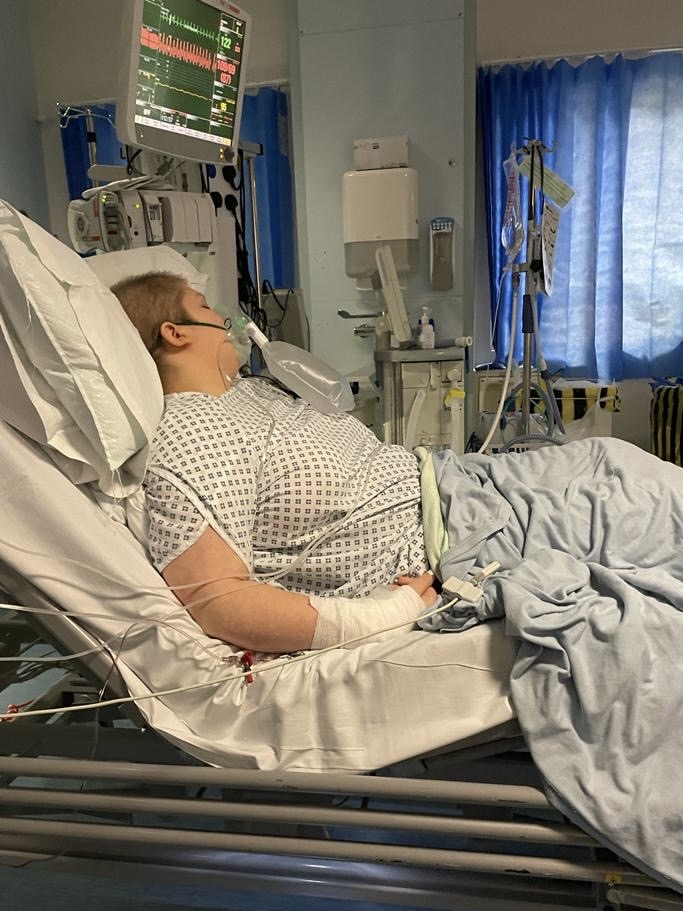How to stay safe in the sun
Find out more about how you can protect your skin when you’re going out in the sun.
-
Melanoma is a type of skin cancer and it’s one of the most common types of cancer in young people
-
Spending time in the sun can damage your skin
-
Knowing how to protect your skin against the sun is really important
What is melanoma?
Melanoma is a type of skin cancer. It’s the most common skin cancer found in young people in the UK. It can start in skin cells, which are called melanocytes. It usually affects moles and it can be caused by your skin being exposed to the sun.
Find out more about skin cancer.
How do I spot skin cancer?
Signs of skin cancer can be any changes to your skin, such as:
-
a new growth or sore that won’t heal
-
a spot, mole or sore that itches or hurts
-
a mole or growth that bleeds, is crusty or forms a scab
It’s important to check your moles regularly, especially if any of the following things happen:
-
they get bigger
-
they change shape
-
they have a blurred, rough or jagged outline
-
they get darker or turn red
-
they are made up of more than one colour
-
they become itchy, painful or crusty
-
they start to bleed
-
their appearance changes in any way
One way to keep on top of any changes is to make a note of any freckles, moles, birthmarks, bumps, sores, scabs or scaly patches that you have. Set a reminder in your phone every month to check the ones you have listed, write down any changes and make a note of any new ones that appear.
If you notice any changes from the list above you should always speak to a healthcare professional and have them take a look as well.
Five steps for protecting your skin from the sun
Use these five top tips to protect your skin from the sun and keep yourself safe.
Use suncream
You should always use a generous amount of water-resistant suncream, at least SPF30. Make sure your skin is clean and dry before applying it and re-apply regularly throughout the day.
Wear a hat
Hats can help to keep the sun off your head, face, neck and ears.
Stay in the shade
The sun’s rays are strongest between 11am and 3pm. This is when it’s best to find a shady spot to avoid getting burnt.
Protect your eyes
Your eyes can feel the effects of the sun too. Make sure you wear sunglasses to help protect your eyes from the strong rays of the sun.
Cover up
Protect your skin by covering up with clothes when possible.
How do I know which suncream to choose?
There are lots of different types of suncream, and lots of different prices. Suncream doesn’t need to be expensive – there are cheaper options available that have been through testing to make sure they work well. Which? is an independent consumer watchdog that tests different products and advises the public. Find out more about which suncreams are effective on the Which? website.
- It’s important to remember that suncream can go out of date and when it does it might become less effective at protecting your skin against the sun. Make sure you check the expiry date on the bottle or look for an icon that looks like a small pot with an open lid. This will have a number inside that shows how long the product is in date for. Eg. 12M = 12 months.
- You should reapply suncream every two hours, whether you’ve been in water or not.
Different suncreams have different SPF ratings. You should always use a suncream that’s SPF30 or above.
- It must have UVA protection - ideally a four or 5 star rating.
If you’re going swimming or you’re going to be in water make sure the suncream you’re using is water resistant. If it’s not you should cover up when you’re in the water and and then you’ll need to reapply the cream when you come out. There are water resistant suncreams available too.
Why is it important to protect your skin from the sun?
In the past 30 years, cases of skin cancer have risen faster than any other types cancer in the UK.
Getting sunburn just once every two years can triple your risk of skin cancer, compared to if you’ve never been burnt. More than two young adults (aged 15-34) are diagnosed with skin cancer every day in the UK.
The damage done to your skin when you’re young could lead to skin cancer developing in later life, so it’s vital to get clued up now and protect yourself from the sun.






